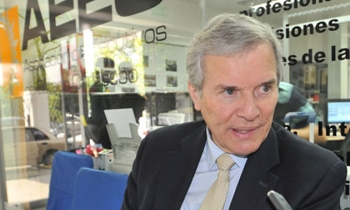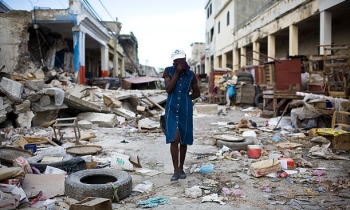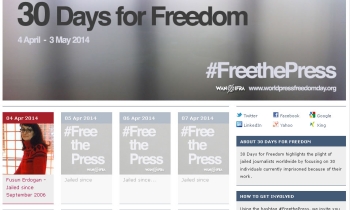Mexico has become only the second country in Latin America to repeal defamation as a criminal offence. Mexican President Felipe Calderón Hinojosa signed the legislation that effectively eliminates criminal defamation, libel, and slander at the federal level last week.

Calderón signed the bill, which had been passed by the Mexican Senate in March, April 12 at an official event attended by Mexican media owners, editors and journalists. Calderón praised the legislation as a guarantor of Mexicans’ right to freedom of expression but cautioned that this right “should be exercised with responsibility.”
El Salvador is the only other country in Latin America that has eliminated defamation as a criminal offence.
The new legislation makes it impossible for a journalist to face prison sentences at the federal level for so-called “honour crimes.” Defamation, libel, and slander are now civil offences under new articles 1916 and 1916a of the federal civil code. They are subject to monetary damages and corrections of the erroneous material.
This reform, according to the Committee to Protect Journalists (CPJ), however, does not offer Mexican journalists complete protection from criminal defamation complaints because many Mexican states continue to carry criminal libel laws on their books. Mexico’s legal system operates on separate state and federal levels; federal laws do not supercede state laws. In most Mexican states, defamation, libel, and slander are still punishable by prison sentences of up to four years.
“We praise President Calderón for signing this important piece of legislation that effectively repeals criminal defamation,” said CPJ Executive Director Joel Simon. “This is a crucial step toward protecting freedom of expression in Mexico.”
Last month, President Calderón had told a mission of the Inter-American Press Association (IAPA) that would sign into law the measure passed unanimously by the Mexican Senate earlier that week. “I welcome the decriminalisation, and I have chosen to promulgate the law,” Calderón told the IAPA delegation, headed by the hemisphere free press organization’s president, Rafael Molina, adding that “making [libel] a criminal offence is an archaic concept and I have decided to support efforts to increase guarantees for freedom of the press in Mexico.”
The measure, an amendment of Articles 350 to 365 of the Penal Code, was passed by the Senate on a 100-0 vote, with one abstention. It was introduced in the lower house, the Chamber of Deputies, in April last year.
“While the federal law is ratified by Calderón’s decision, we call on state governments to follow the lead of the federal government and decriminalize press laws to ensure that journalists throughout the country can work without the fear of legal prosecution,” added Simon.
For the time being, according to Reporters sans Frontières (RSF), the maximum sentences for defamation continue to be:
- one year in prison in the states of Guanajuato and Morelos;
- two years in prison in the states of Campeche, Chihuahua, Hidalgo, Nayarit, Querétaro, Quintana Roo, San Luis Potosí, Sinaloa, Sonora, Tamaulipas, Tlaxcala, Yucatán and Zacatecas;
- three years in prison in the states of Aguascalientes, Coahuila, Colima, Durango, Guerrero (except for a state official in the exercise of his duties), México, Michoacán, Nuevo León and Tabasco;
- four years in prison in the states of Baja California Sur, Puebla and Veracruz;
- five years in prison in the state of Oaxaca;
- nine years in prison and the equivalent of nine times the minimum wage in the state of Chiapas.
Though imprisonment for press offences has fallen into disuse in the Americas, prosecution on criminal defamation charges remains common. A landmark 2004 ruling by the Inter-American Court of Human Rights has led a number of politicians in the region to consider reforms that would wipe libel entirely from the criminal law books.
In the 2004 case, the Inter-American Court overturned the criminal defamation conviction of Costa Rican journalist Mauricio Herrera Ulloa, a reporter with the daily La Nación. The Costa Rica-based court ruled that the conviction violated the reporter’s right to free expression, and it ordered the Costa Rican government to pay damages. The court’s president, Judge Sergio García Ramírez, wrote a separate, concurring opinion questioning the very basis for criminal defamation and suggesting that such laws be repealed.









